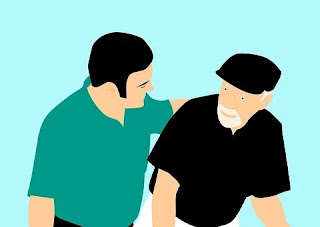How to Become an Amazing Caregiver and Support Worker
This article discusses how caregivers, carers and support workers can improve on their services and client care to service users
Nobody cares how much you know, until they know how much you care...
— Theodore Roosevelt
How Carers Can Become Amazing Caregivers and Support Workers in 10 Ways
All over the world, people have accepted caring Jobs voluntarily or as paid services. Either way, One thing is that carers take care of the aged, sickly, disabled, vulnerable, mentally and physically challenged people.
They caregivers for these people could be their friends, family, strangers, and even people of different ethnicity, race, tribe, and nations. No doubt, the Job requires skills, and experience in patience, and charity as a virtue. Their services comprise of a range of tasks and responsibilities that are energy and time demanding.
This article discusses how carers, caregivers, and support workers with little or no experience can execute their Job description effectively and efficiently in 10 ways.
Note: For the purposes of this article, the people giving care will be randomly referred to as the carer, support worker, support assistant, and caregiver, while the people receiving the care will be referred to as the service user, customer, patient, caree, and customer.
1. Communication
Communication is a very important aspect of caregiving. The carer must be able to listen to the service user and understand them. It is imperative to note that your client can lash out at the slightest provocation or become cheeky. As a support worker, you should never react in aggressive manner but remain calm and confident.
What you have to do is to find out what went wrong, it could be you have skipped a routine or some past events just refreshed their memory which made them unhappy. You just need to reassure them of their security, and comfort, and promise to help them when they calm down. Moreover communicate that you can help them when you're told what went wrong. I have observed that this technique works very well.
2. Medication
A good number of patients is on routine medication and it is the duty of carer to strictly adhere to the doctor’s prescription. Some service users take pain killers, others on laxatives, depressants, inhalants, stimulants or regular analgesics. Hence skipping medication can lead to some unexpected outburst or behavior.
Caregivers must ensure medication is taken as at when due and should medication be skipped, kindly phone up the General Practitioner (GP) for advice and follow it up.
3. Health hygiene
It’s very pertinent that you do not presume any health and hygiene routine of the customer. Kindly ask when in doubt. Some patients tend to use particular toiletries or adhere to some form of hygiene routine like haircut, never repeat clothes and attends pedicure, manicure, massaging saloons or skin tanning.
Believe me, every activity must have been approved by a specialist, and you should not overlook this great responsibility. Usually there is a score card for daily, monthly, biannual and annual activities. Get the task done and tick as appropriate; cheating is never condoned and should not be practiced.
4. Feeding
Most clients have their dieticians that have recommended certain kinds and classes of foods they can be consumed and how it should be prepared. The reason is that clients may have difficulty in swallowing, throat infection or or some kind of allergy. No worries!! there is always a time table pegged beside the dining table or kitchen door. Just access the menu listing, check for the food items, and careful follow the preparation routine.
Most clients do not take regular grocery food but strictly on diet, hence adhere to their feeding routine and time table. Please do not add and don’t remove because the meal you’re preparing is not for your consumption.
Click on the link below for the remaining part of this interesting article👇👇👇





Comments
Post a Comment